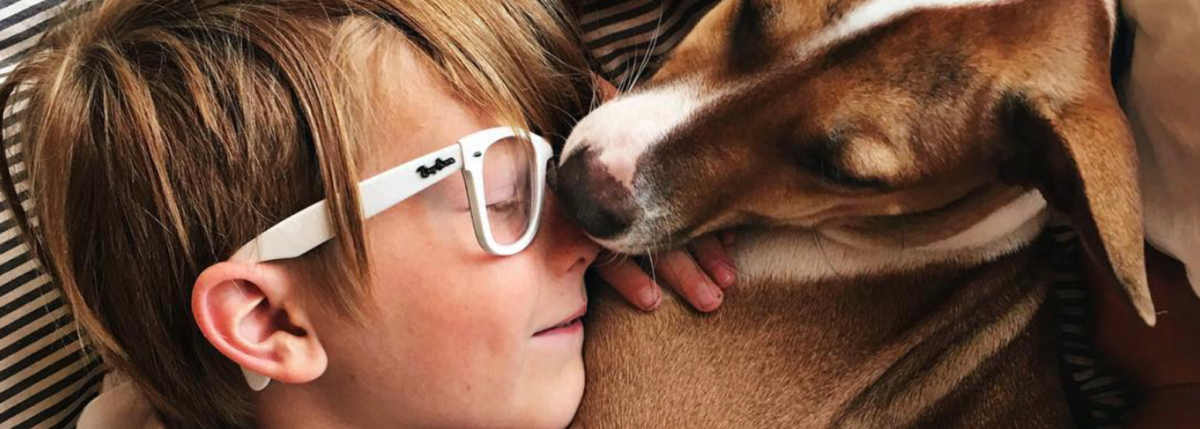Up All Night
If you’re a parent or caregiver for someone with type 1 diabetes, you’re on a 24-hour work schedule with no breaks. Blood sugar can rise or fall at night based on a number of factors, and it’s never predictable.
Our son Henry is 9. He’s been dealing with diabetes since he was 5, and we’ve always worked to make sure he has the best possible care.
He’s wired with a Dexcom continuous glucose monitor, and we keep his receiver in our room so when it goes off it wakes us up.
When he goes low at night, my wife or I creep up to his room, test his blood sugar and stick the straw of a juice box into his mouth for him to half-consciously drink. When he goes high, we figure out how much insulin he needs and put it in his pump, listening to it click in the dark until it’s finished.
He sleeps through it, his diabetic alert dog curled up next to him.
When he’s low, she’ll sit up and wag her tail, sniffing at my hand for a treat. I praise her and let her go back to sleep while I bring a juice box to his mouth. Then I leave the room, walk down the stairs and try to get back to sleep.
It’s fair to say that my wife and I go up and down those stairs at least once a night, sometimes more. He’s young and growing, so his numbers are erratic. He goes high when he’s growing a lot, he goes low when he’s been swimming, food sits in his stomach after dinner and doesn’t start digesting until three in the morning. It’s always something different.
The thing is, he’s getting to the age where he handles more and more of his diabetes care himself. He can calculate his insulin dose, calibrate his continuous glucose monitor (CGM) and change his pod if he has to. We’ve gradually introduced these tasks as he’s become comfortable with them, dangling carrots like being able to travel without us as rewards for mastering his condition. It’s important to us, as he grows up, to make sure he has the tools to be a responsible, healthy person with diabetes.
So why is it so hard for us to make ourselves wake him up at night?
He should be getting an alert from the dog, or the CGM. He should be waking himself up, finger checking and treating himself. He’s going to have to do it hundreds if not thousands of times in his adult life. He needs to start now.
But I walk up the stairs, I slowly open his door, I see his face finally peaceful after another day of dealing with this disease and I just can’t take that away from him.
So I let him sleep another night.
We know that being able to wake up from a low is a vital survival skill for people with diabetes. We got the dog to help transition him into doing that. He’s great with his awareness during the day, and I’m sure he’ll be great at night. But I’m just not ready to make him do it.
Those precious ten hours of sleep are the one part of the day when he doesn’t have to think about diabetes. Taking those away from him—making him responsible for yet another thing that no 9-year-old should be responsible for —seems almost abusive.
Sleep is super important for kids. It gives their body time to recover from their daily activities and allows their brain to process and store memories. He’s a very active kid with a lot of hobbies, and when he doesn’t get that downtime you can tell he’s miserable.
In the end, this is another one of those no-win caregiver situations. We wake him up and he doesn’t get the sleep he needs to grow up healthy. We don’t and he doesn’t learn a skill that could keep him alive.
If there’s one thing I’ve learned about parenting, it’s that there’s never any one perfect answer. You do the best you can in the time you have and hope that it’s enough. For now, I think, we’ll let him sleep another night.
Read I Can’t Sleep by Sara Jensen and more about hypoglycemia.





